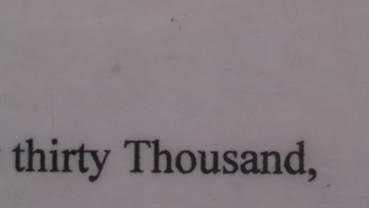
Absenting creates a presence: presenting creates an absence.
This creates a political problem, meaning one of value.
John Locke, James Madison and Robert Dahl were political theorists who worked on this problem, the problem of a presence creating an absence (and vice versa).
Locke’s work presented liberalism and a way for particular groups to make absent other groups; this has worked against the likes of tribes, nation-states and monarchies.
Madison’s work presented the US Constitution and a way for a particular group (We the People) to make present and absent other groups (representation); this is done via the decennial census and the ratio of “one Representative for every thirty Thousand.” Madison’s presence is law, yet absented by the usurpation.
Dahl is simple, so to speak: he absented Madison’s presence by ignoring the “thirty Thousand” found in Article 1, Section 2, Clause 3. This makes Yale’s Professor Dahl the 20th century political theory front man for the representation usurpation; the 21st century Yale front man for the usurpation is Sterling Professor of Law Akhil Reed Amar. Amar is simple too, so to speak: he just argues / presents by absenting one of the two shalls in the aforementioned Article.
Viewed from the past, the constitutional concept “We the People” has been an absent presence; viewed from today, it looks like a presenting presence; viewed from the future, that would be a constitutional We the People and an end to the representation usurpation, or simply, 2020.
*Next Up: 14 November and a new pamphlet release, A Dissenting Opinion from Johnny Reb and Gus Yank about George Thomas.
Posted by Bryan W. Brickner
 RSS Feed
RSS Feed
